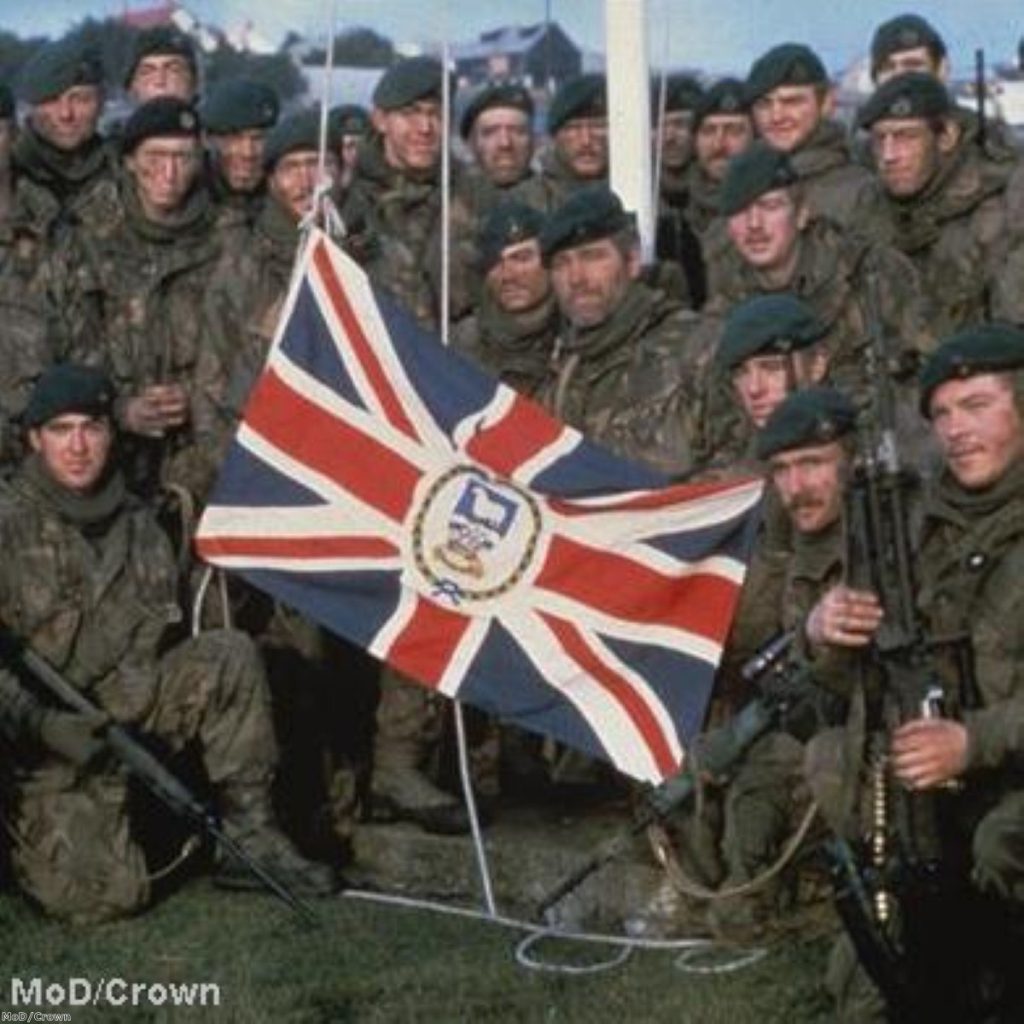Analysis: Is this Cameron’s Falklands?
David Cameron took a major gamble and it appears to have paid off. Could Libya be the making of his leadership?
By Ian Dunt Follow @IanDunt
This article was originally published on August 22nd, 2011.
Margaret Thatcher was heading for the door before the Falklands war, but after a widely supported, morally coherent and ultimately successful military campaign she was enjoying approval ratings that were through the roof. It saw her through 11 years in office.


David Cameron's assured performance in front of Downing Street this morning, complete with fitting sunshine and an impressed press pack, suggested the current prime minister might dream of similar results given events in Libya.
"This has not been our revolution but we can be proud we played our part," Cameron said, in a remark which defined the cautious but optimistic tone he adopted throughout the statement.
It was sensible to do so. Gaddafi is still technically in power, although no-one seriously believes he can maintain it. More relevantly, long dictatorships often tend to be followed by ethnic, religious, tribal or political bloodshed when they eventually fall apart. Libya's complex tribal system has all the potential to follow a depressingly similar pattern.
There are reasons to be optimistic, however. Where the National Transitional Council (NTC) has been in power in Libya, it has kept order and largely prevented reprisals. Also, western forces seem to have learnt the disastrous lesson from Iraq: that when you make the army and police redundant in one sweep, you end up with many trained, armed men of fighting age but without a salary – making them easy pickings for terrorists and extremists.
The fact that that lesson has been learned is indicative of the British government's general handling to the Libya situation, which has been to adopt almost precisely the opposite approach to Iraq. The Commons debate Cameron instigated saw him repeatedly stress that the action was "necessary, legal and right". The lesson of Iraq was to prepare for what happens when the regime falls. But it was also to secure a legal basis for war and one of Cameron's most impressive achievements was to get Security Council support for a resolution allowing Nato action to protect civilians. Few people doubt that this saved thousands of lives in the rebel held city of Benghazi.
Throughout the conflict, the signs became increasingly depressing. The mission statement quickly expanded from protecting civilians to something akin to regime change, even if that couldn't be said out loud. There was a distinct sense that Nato forces could get bogged down in another long and murky war with allies we knew little about. Worse, other Middle East dictators had taken the precise opposite message that the UK had wanted to communicate. Instead of being frightened of attacking their own people, leaders like Bashar al-Assad of Syria, could act freely, safe in the knowledge the west could not intervene while it was occupied in Libya. Reports of the rebel forces showed them to be an amateurish military force seemingly incapable of conducting a professional military campaign.
Even with those worries seemingly conquered, the Libyan mission does not bear comparison with the Falklands. It did not involve an attack on British interests and it did not involve boots on the ground, relying instead on air power. The closest comparison is with Kosovo in 1999.
The difference is that Cameron's Kosovo moment comes in the aftermath of Iraq, which made the concept of liberal intervention so unfashionable that many considered it dead altogether. His handling of the conflict, based literally on reversing all the presentational, operational, moral and political mistakes of Iraq, has revived an acceptance of, if not an appetite for, British military intervention overseas.
The victory is also particularly relevant for Cameron, whose foreign policy credentials were arguably his weakest policy area. From his comments about Pakistan to an Indian audience to an ill-advised visit to Egypt with arms dealers in tow following the overthrow of Hosni Mubarak, Cameron seemed clumsy and childish when it came to foreign affairs. But his leadership at the UN stage, his deft handling during the campaign and the luck of what seems to be a victorious outcome have handed him a major victory. It may not be Falklands, but it's certainly the high point of the coalition's foreign policy agenda to date.

